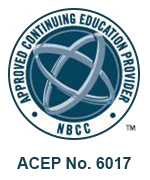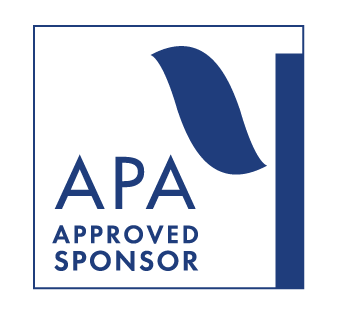Weekend Conference April 9-11, 2021
Program Date(s):
April 9, 2021 - April 11, 2021Program Chair
Sheila Hill, LCSW-C and Michelle Kwintner, PhD, LCSW-R
Dominique Scarfone and Michelle Kwintner share a sneak peak of the weekend
Weekend Overview
Ring the bells that still can ring
Forget your perfect offering
There is a crack, a crack in everything,
That’s how the light gets in.
“Anthem” by Leonard Cohen
The understanding of traumatic experiences is central to therapeutic theory and practice. Freud described traumatic experience as a tear, as a crack in the psyche’s protective shield. The tear, the crack, is of such violence that it introduces an ongoing psychic disorganization that lives on as “a thing”. Dominique Scarfone, MD, our guest presenter for this IPI weekend, asserts that the crack in the psychic fabric, and the instrument of violence that made the crack, manifest in life and in treatment as repetition compulsion. Dr. Scarfone’s work shows how the repetition compulsion can be used in the process of weaving a new shield, a new psychic organization.
Dominique Scarfone brings a poetic, erudite, and generous mind, as well as a sparkling wit, to his understanding of trauma’s inception and of its symptoms, which he calls “survival techniques of the soul”. His language is clear and direct. The clinical vignettes he describes are vivid and engaging.
He will offer four presentations to describe his understanding of trauma and its treatment based on his interpretation of the French translation of Freud’s work. He will discuss the treatment of trauma in its various manifestations as an attitude that can facilitate an openness to the patient’s material; a reopening of dark, closed, and frozen places in the psyche; and the uses of the transference, attention, and empathy in clinical practice.
His Saturday morning presentation is entitled, “Trauma, Subjectivity and Subjectality”. He will discuss the process of making sense of what did not make sense for the individual at the time of the trauma. He will describe using the transference relationship to allow the patient to recover from trauma, and thus move from passivity to reacquiring the emergence of an active self.
The course will use lecture, large group discussion, small group/GAM group discussion, case presentation and discussion and informal discussion to achieve the course objectives.
Friday 10:00am – 6:10 pm EST
Saturday 9:45 am – 6:20pm EST
Sunday 10:00 am – 2:00pm EST
Dominique Scarfone, MD
 Dominique Scarfone, MD is a psychoanalyst in private practice and a training and supervising analyst at the Canadian Psychoanalytic Society & Institute. He recently retired from his tenure as full professor at the Université de Montréal. A former Associate Editor of the International Journal of Psychoanalysis, he is on the Editorial board of the Psychoanalytic Quarterly and on the scientific advisory committees of various journals.
Dominique Scarfone, MD is a psychoanalyst in private practice and a training and supervising analyst at the Canadian Psychoanalytic Society & Institute. He recently retired from his tenure as full professor at the Université de Montréal. A former Associate Editor of the International Journal of Psychoanalysis, he is on the Editorial board of the Psychoanalytic Quarterly and on the scientific advisory committees of various journals.
Dr. Scarfone has authored many books and book chapters, and journal articles on psychoanalytic topics. Most recently, Dr. Scarfone published: Laplanche: An introduction and The Unpast. The Actual Unconscious, both published in New York by UIT (The Unconscious in Translation). He also co-edited Unrepresented States and the Construction of Meaning (Karnac, 2013). One of the keynote speakers at the 2019 IPA Congress in London, UK, and a speaker at the Meeting for the Centennial of the International Journal of Psychoanalysis, also in London, Dr. Scarfone is regularly invited to give lectures as well as clinical and theoretical workshops throughout North America, Europe and Latin America.
Schedule of Presentations
*Attendance at all sessions including Small Group Discussion is Mandatory to receive the CE/CME certificate
Educational Objectives
Ten Short Essays on How Trauma is Inextricably Woven into Psychic Life
- Participants will discuss“trauma” and “in-fans” and describe the difference between “implantation” and “intromission”.
- Participants will list two examples of “the absence of love” from clinical experiences.
Small Group Discussion
- Participants will discuss a case or a personal example in the small affective learning group that illustrates trauma.
- Participants will describe an example of “in-fans” that occurs in the group process.
Clinical Case Presentation
- Participants will explain one example of the patient’s traumatic experience.
- Participants will discuss the clinician’s understanding of “intromission” in the clinical work that is presented.
Small Group Discussion
- Within the setting of the small group, participants will apply the use of the concept of “intromission” in the case presentation and in their own work.
- Within the setting of the small group, participants will apply their understanding of “in-fans” in the case presentation and in their own clinical work.
Trauma, Subjectivity, and Subjectality
- Participants will explain how to distinguish “subject” from ”subjectality”
- Participants will describe Dr. Scarfone’s understanding of the “compulsion to repeat”.
Small Group Discussion
- Participants will discuss examples of the “compulsion to repeat”.
- Participants will discuss an example of clinical or personal “subjectality”.
Free Association, Surprise, Trauma, and Transference
- Participants will describe “free association,” and distinguish between “filled-in transference” (soft) from “hollowed-out transference (hard).
- Participants will describe the situations in which surprise becomes disorientation in the context of trauma.
Small Group Discussion
- Participants will discuss an example from their clinical work or personal experience of “filled-in transference”.
- Participants will discuss an example from their clinical work or personal experience of “hollowed-out transference”.
Saturday Plenary
- Participants will apply one concept from the theory and clinical case presentation as described by Scarfone to a clinical or organizational situation.
- Participants will apply Scarfone’s concept of surprise as it pertains to the organizational process during the weekend.
From Readiness to Transference: The Lesson of Hamlet
- Participants will list two different kinds of “readiness” and name two different kinds of “attention”.
- Participants will discuss “après coup” and “psychological chimera”.
Small Group Discussion
- Participants will discuss the clinical challenge of “passivity”.
- Participants will discuss repetition compulsion as a “survival technique of the soul”.
Closing Dialogue: Integrating the weekend conference experience
- Utilizing the large group discussion, participants will apply the concepts of “repetition compulsion”, “loss of words”, “après coup”, “filled-in transference”, “implantation” and/or “intromission” to their professional work.
- Participants will integrate Laplanche’s concept of “intromission” within the framework of object relations theory.
Registration
Click Register Now and choose one of the following options:
Full Conference:
$497 up to 21 days in advance; $517 thereafter
*Full members: $359
*Associate members: $410
Full time students: $150
Saturday One Day (morning and afternoon): $150
Saturday Morning only: $45
*Login to the website with your member information to access your discounted registration rate
Continuing Education Credit Hours
Weekend Conference:
14.5 CE/CME credits
Saturday One Day:
6 CE/CME credits
Saturday Morning only:
2.5 CE/CME credits
Continuing Education Information
This activity has been planned and implemented in accordance with the accreditation requirements and policies of the Accreditation Council for Continuing Medical Education (ACCME) through the joint providership of American Psychoanalytic Association and the International Psychotherapy Institute. The American Psychoanalytic Association is accredited by the ACCME to provide continuing medical education for physicians.
The American Psychoanalytic Association designates this Live Activity for a maximum of 14.5 AMA PRA Category 1 Credit(s)™. Physicians should claim only the credit commensurate with the extent of their participation in the activity.
IMPORTANT DISCLOSURE INFORMATION FOR ALL LEARNERS: None of the planners and presenters of this CME program have any relevant financial relationships to disclose.
The International Psychotherapy Institute, IPI, is approved by The American Psychological Association to sponsor continuing education for psychologists. IPI maintains responsibility for the program and its content. The International Psychotherapy Institute has been approved by NBCC as an Approved Continuing Education Provider, ACEP No. 6017. Programs that do not qualify for NBCC credit are clearly identified. The International Psychotherapy Institute is responsible for all aspects of the programs. The International Psychotherapy Institute is an approved sponsor of the Maryland Board of Social Work Examiners for continuing education credits for licensed social workers in Maryland. The International Psychotherapy Institute is recognized by the New York State Education Department’s State Board for Social Work as an approved provider of continuing education for licensed social workers #SW-0299.
Participants are responsible for verifying that IPI CE credit is accepted by the licensing boards in their own states. Please note: At this time we are aware that CE credit for IPI events will not be accepted by the New Jersey Board of Social Work.


Membership Benefits
Become a member of IPI at the “Associate Member PLUS”, or “Full Member PLUS” level and you will receive an IPI Zoom Pro account as one of your member benefits. Associate and Full Members also receive discounted registration fees for most of IPI’s events, a subscription to PEP Web, the online psychoanalytic library, and other benefits depending on membership level.
HIPAA compliant Zoom video accounts are provided for all IPI Associate Member Plus and Full Member Plus memberships. IPI has a HIPAA Business Associate Agreement with Zoom, which provides a HIPAA compliant platform for our accounts. HIPPA compliance is strongly recommended for all internet-mediated clinical work and clinical teaching. The “PLUS” add-on to the IPI membership gives the user the ability to host online meetings with multiple people at the same time. [Current members can upgrade to the “Plus” account and only pay the difference in price from your current membership level.]

